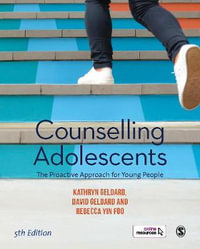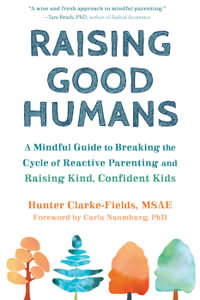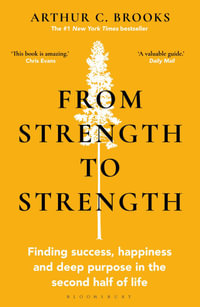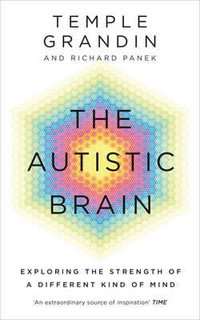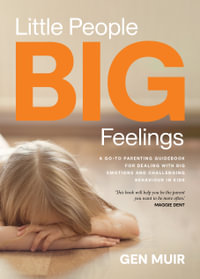
Evolution, Early Experience and Human Development
From Research to Practice and Policy
By: Darcia Narvaez (Editor), Jaak Panksepp (Editor), Allan N. Schore (Editor), Tracy R. Gleason (Editor)
Hardcover | 31 January 2013
At a Glance
512 Pages
16.0 x 23.9 x 4.1
Hardcover
RRP $328.00
$193.50
41%OFF
or 4 interest-free payments of $48.38 with
orAims to ship in 5 to 10 business days
Evolution, Early Experience and Human Development asserts that human development is being misshaped by government policies, social practices, and public beliefs that fail to consider basic human needs. In this pioneering volume, scientists from a range of disciplines theorize that the increase in conditions such as depression and obesity can be partially attributed to a disparity between the environments and conditions under which our mammalian brains currently develop and our evolutionary heritage. For example, healthy brain and emotional development depends to a significant extent upon caregiver availability and quality of care. These include practices such as breastfeeding, co-sleeping, and parental social support, which have waned in modern society, but nevertheless may be integral to healthy development. As the authors argue, without a more informed appreciation of the ideal conditions under which human brains/minds develop and function, human beings will continue to struggle
with suboptimal mental and physical health, and as problems emerge psychological treatments alone will not be effective. The best approach is to recognize these needs at the outset so as to optimize child development. Evolution, Early Experience and Human Development puts forth a logical, empirically based argument regarding human mammalian needs for optimal development, based on research from anthropology, neurobiology, animal science, and human development. The result is a unique exploration of evolutionary approaches to human behavior that will support the advancement of new policies, new attitudes towards health, and alterations in childcare practices that will better promote healthy human development.
Industry Reviews
SECTION I HUMAN NATURE: THE EFFECTS OF EVOLUTION AND ENVIRONMENT Chapter 1. The Value of the Environment of Evolutionary Adaptedness for gauging children's well-being Darcia Narvaez, Jaak Panksepp, Allan Schore, Tracy Gleason Chapter 2. Bowlby's "Environment of evolutionary adaptedness": Recent studies on the interpersonal neurobiology of attachment and emotional development Allan Schore Commentary: Early experience, neurobiology, plasticity, vulnerability and resilience by Michael Lamb Chapter 3. How primary-process emotional systems guide child development: Ancestral regulators of human happiness, thriving and suffering Jaak Panksepp Commentary: The integrative meaning of emotion by Daniel Siegel Chapter 4. Epigenetics and the environmental regulation of the genome and its function Michael Meaney Commentary: The messages of epigenetic research by Jerome Kagan Chapter 5. Neurobiology and the evolution of mammalian social behavior C. Sue Carter and Stephen W. Porges Chapter 6. Dopamine: Another 'magic bullet' for caregiver responsiveness? Alison Fleming, Viara Mileva-Seitz, Veronica M. Afonso Chapter 7. The Neurobiological basis of empathy and its development in the environment of evolutionary adaptedness Eric E. Nelson Commentary: The Death of Empathy? by Bruce Perry
SECTION COMMENTARY: Born For Art, and the Joyful Companionship of Fiction by Colwyn Trevarthen
SECTION II: EARLY EXPERIENCE: THE EFFECTS OF CULTURAL PRACTICE Chapter 8. Birth and the first postnatal hour Wenda R. Trevathan Chapter 9. Night-time nurturing: an evolutionary perspective on breastfeeding and sleep Helen Ball and Charlotte Russell Chapter 10. Touch and pain perception in infants Tiffany Field and Maria Hernandez-Reif Chapter 11. Infant feeding practices: rates, risks of not breastfeeding and factors influencing breastfeeding Zaharah Sulaiman, Lisa H. Amir and Pranee Liamputtong Commentary: Short term and long term effects of oxytocin released by suckling and of skin to skin contact in mothers and infants by Kerstin Uvnäs Moberg Chapter 12. Developmental optimization Darcia Narvaez & Tracy Gleason Commentary: Darwin et al. on developmental optimization by David Loye
SECTION COMMENTARY: Adaptations and Adaptations by Ross Thompson
SECTION III: THEMES IN HUMAN EVOLUTION Chapter 13. Play, plasticity, and ontogeny in childhood Anthony D. Pellegrini and Adam F. A. Pellegrini Chapter 14. The Value of a play-filled childhood in development of the hunter-gatherer individual Peter Gray Chapter 15. Rough-and-tumble play and the cooperation-competition dilemma: Evolutionary and developmental perspectives on the development of social competence Joseph L. Flanders, Khalisa N. Herman, and Daniel Paquette Commentary: Play in Hunter-Gatherers by Barry Hewlett and Adam H. Boyette
SECTION IV: PERSPECTIVES AND COUNTERPERSPECTIVES Chapter 16. Perspective 1: Why would natural selection craft an organism whose future functioning is influenced by its earlier experiences? Jay Belsky Chapter 17. Perspective 2: Play, Plasticity, and the Perils of Conflict: 'Problematizing' Sociobiology Melvin Konner Chapter 18. Perspective 3: The Emergent Organism: A New Paradigm William Mason Chapter 19. Perspective 4: Can science progress to a revitalized past? Gay Bradshaw Chapter 20. Perspective 5: Earliest experiences and attachment processes Howard Steele Chapter 21. Perspective 6: Nurturant vs. non-nurturant environments and the failure of the Environment of Evolutionary Adaptedness James W. Prescott Chapter 22. Perspective 7: It's dangerous to be an infant: on-going relevance of John Bowlby's Environment of Evolutionary Adaptedness (the EEA) in promoting healthier births, safer maternal-infant sleep, and breastfeeding in a contemporary western industrial context James J. McKenna and Lee T. Gettler
SECTION V: CONCLUSION Chapter 23. The Future of human nature: Implications for research, policy, and ethics Darcia Narvaez, Jaak Panksepp, Allan Schore and Tracy Gleason
Subject Index Author Index
ISBN: 9780199755059
ISBN-10: 0199755051
Published: 31st January 2013
Format: Hardcover
Language: English
Number of Pages: 512
Audience: Professional and Scholarly
Publisher: Oxford University Press USA
Country of Publication: US
Dimensions (cm): 16.0 x 23.9 x 4.1
Weight (kg): 0.87
Shipping
| Standard Shipping | Express Shipping | |
|---|---|---|
| Metro postcodes: | $9.99 | $14.95 |
| Regional postcodes: | $9.99 | $14.95 |
| Rural postcodes: | $9.99 | $14.95 |
How to return your order
At Booktopia, we offer hassle-free returns in accordance with our returns policy. If you wish to return an item, please get in touch with Booktopia Customer Care.
Additional postage charges may be applicable.
Defective items
If there is a problem with any of the items received for your order then the Booktopia Customer Care team is ready to assist you.
For more info please visit our Help Centre.
You Can Find This Book In

The Teenage Girl's Guide to Living Well with ADHD
Improve Your Self-Esteem, Self-Care and Self Knowledge
Paperback
RRP $42.99
$32.95
OFF
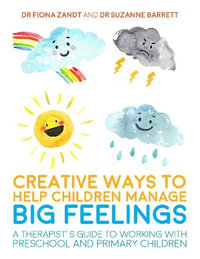
Creative Ways to Help Children Manage BIG Feelings
A Therapist's Guide to Working with Preschool and Primary Children
Paperback
RRP $66.99
$57.50
OFF
